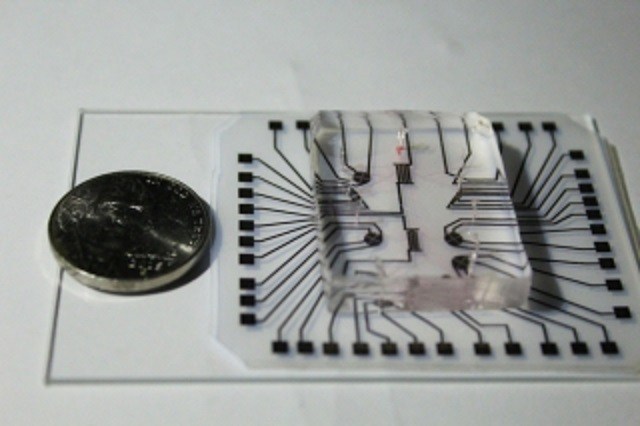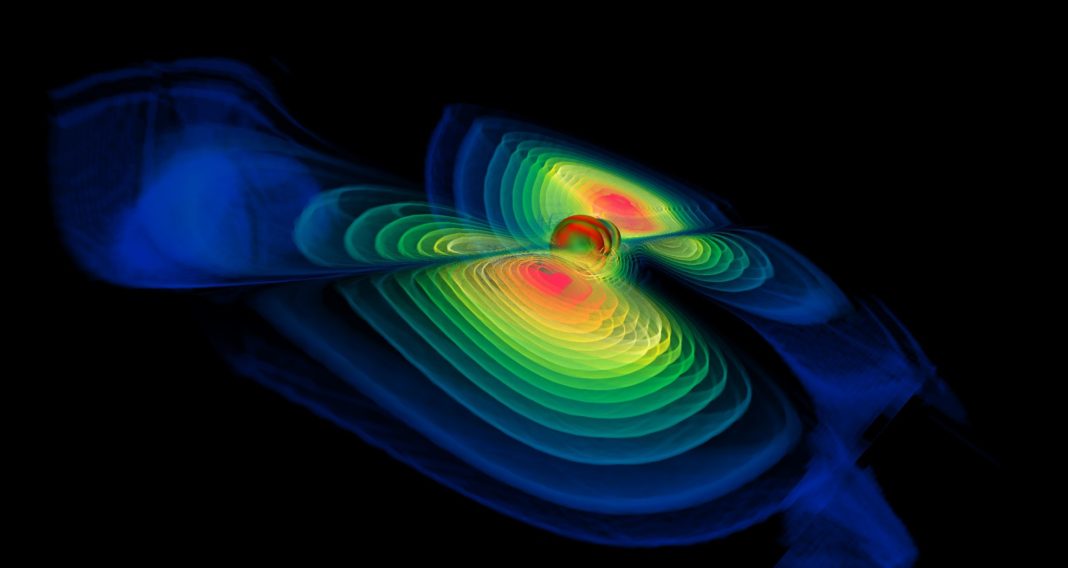This new ‘lab on a chip’ technology is making the headlines all across the world and not just because of its innovativeness. Much of the hype is down to the fact that this chip costs just 1 cent to make and could be the next big thing in technology. Researchers at Stanford University’s School of Medicine developed the chip with the help of just an ordinary inkjet printer, keeping production costs down to just 1 cent per chip.
Ron Davis is a professor of biochemistry and genetics and director of the Stanford Genome Center and he feels this new technology could revolutionize the medical industry in a similar way to that of low-cost genome sequencing. He’s also the senior author of a study describing the technology that’s recently been published in the Proceedings of the National Academy of Sciences. The lead author of the study is Rahim Esfandyarpour, Ph.D., and engineering research associate at the Stanford Genome Center.
By developing this lab on a chip technology, people all over the world, particularly those in developing countries where medical supplies are sparse, can now benefit from early diagnosis’ and essentially start early treatment and prolong their lives. Esfandyarpour said, “Enabling early detection of diseases is one of the greatest opportunities we have for developing effective treatments. Maybe $1 in the U.S. doesn’t count that much, but somewhere in the developing world, it’s a lot of money.”
The chip itself is made up of a clear silicone microfluidic chamber that houses both cells and a reusable electronic strip that’s layered with nanoparticles ink. One chip can be made in around 20 minutes. One of the chip’s applications allows users to analyze different cell types without using any labels to track the cells. What happens instead is that cells are separated based on their electrical properties through a process called dielectrophoresis.
These multifunctional biochips will greatly improve the accuracy of diagnoses’, and the fact that they are so inexpensive to produce is a massive bonus. Moving forward, this technology will allow clinicians to sequence the DNA of tumors to analyze specific mutations and devise personalized treatment plans. “The genome project has changed the way an awful lot of medicine is done, and we want to continue that with al sorts of other technology that are just really inexpensive and accessible,” Davis said.
Moving forward the team is hoping that the chip will allow transformation in the lab in how people use instruments. Esfandyarpour says, “I’m pretty sure it will open a window for researchers because it makes life much easier for them – just print it and use it.”
More News To Read
- Wearables Taken to a New Level as MIT Researchers Create Ingestible Battery
- Peter Lewis’ World of Quantum Mechanics
- Would a Black Hole Annihilate Us If It Suddenly Appeared in Our Solar System?
- Will the Discovery of Time Crystals Change Our Perception of the Space-Time Continuum?
- Will China be the First to Have a Workforce Dominated by Robots?











